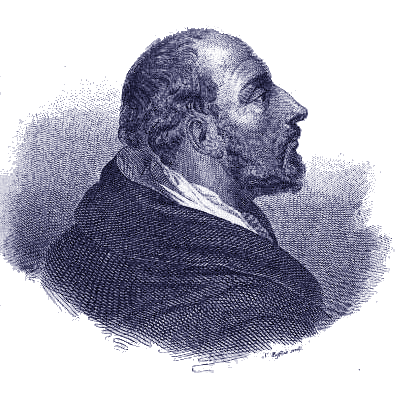Biography
The theory of Natural Law claims that all humans can discover what is right, that it is written into our nature in some way. As such, the theory has had many proponents across the world and dating back to Aristotle and beyond. Aristotle developed the theory, but on this site we are more concerned with Aquinas' theory of Natural Law
St. Thomas Aquinas (1225-1274) was an Italian Catholic philosopher and the church's greatest theologian. He was brought up in his family's castle with seven brothers, educated at a monastery and then the Universtiy of Naples, after which he joined the Dominican order at Naples.
His brothers were not happy about this, and kidnapped Aquinas, holding him captive for a year. They did everything they could to dissaude him from returning to the Dominican order, including presenting him with a prostitute. He was not tempted, and drove her away with a firebrand.
Aquinas returned to the order and went to study in Cologne under Albertus Magnus ('Albert the Great'), who went with him to Paris where he later gained a doctorate and lectured in theology. Aquinas was a large man - known to many as 'the dumb ox', although Albert the Great said of him that "the Dumb Ox will bellow so loud his bellowing will fill the world."
Aquinas' work has had an astounding influence, yet after a mystical experience only months before he died, he declared "I cannot go on... All that I have written seems to me like so much straw compared to what I have seen and what has been revealed to me."
Aquinas died in his 50th year. In 1323 he became a saint, and at the Council of Trent in the mid 1500s, only his work and the Bible were placed on the altar. Aquinas' teaching is seen by many Catholics as being the basis of their theological position. Only Augustine could be considered as having as great an influence.

